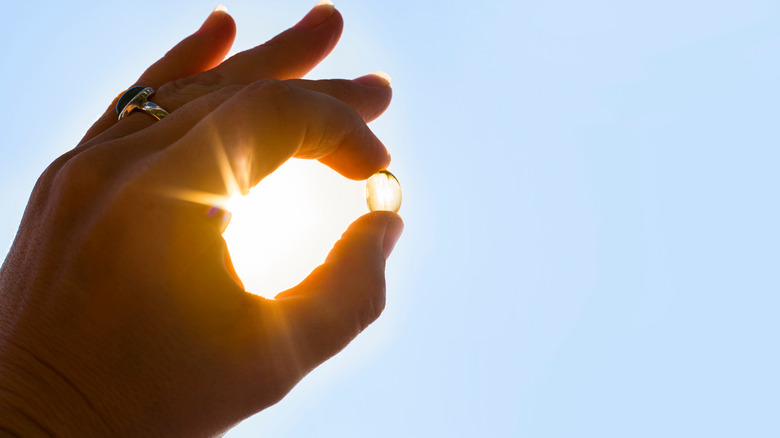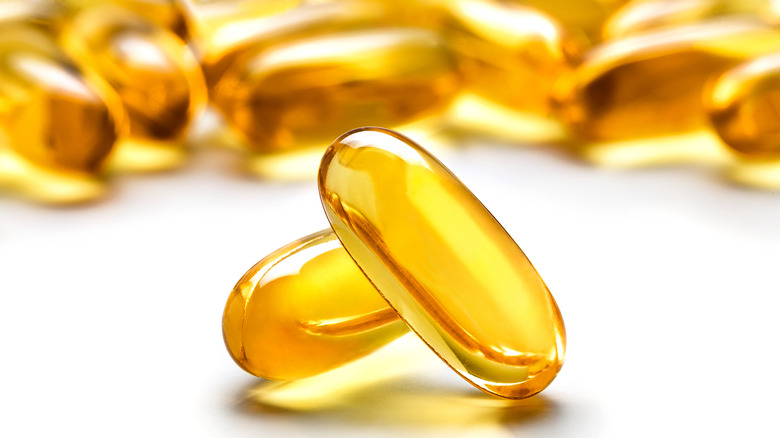Vitamins You Should Take For Seasonal Affective Disorder
Seasonal affective disorder (SAD) is a type of depression that occurs with the change of the seasons. According to the National Institute of Mental Health (NIMH), many cases of SAD start when it gets colder and darker in the late fall or early winter, and this is recognized as winter-pattern SAD. The symptoms of SAD will generally fade in the spring and summertime, as less commonly do people suffer from summer SAD.
The Mayo Clinic reports that changing circadian rhythms, as well as significant changes in melatonin and serotonin hormone levels, can play a part in SAD. However, a more specific cause is unknown. Symptoms of SAD include fatigue, losing interest in activities you enjoy, agitation, and disrupted sleep patterns.
There are some treatments available to support those living with SAD including light therapy, psychotherapy, and antidepressant medications.There is also research showing that adding certain supplements to your daily routine can help ease the symptoms of SAD.
Vitamin D and seasonal affective disorder
The sunshine vitamin has been at the forefront of many topics lately, and there is research showing that those deficient in vitamin D are more susceptible to some illnesses and conditions than those who are not deficient (via Cleveland Clinic). One study published in Nutrients journal suggests that low levels of vitamin D can increase the risk of SAD.
Another study published in the International Physical Medicine and Rehabilitation Journal suggests that those who live with SAD may benefit from vitamin D supplementation, as it can be an effective treatment strategy. The study reports that there is a correlation between vitamin D deficiency and SAD.
A team of researchers out of the University of Georgia College of Education also found a link between low levels of vitamin D and SAD. Alan Stewart, one of the researchers, shared that "Rather than being one of many factors, vitamin D could have a regulative role in the development of SAD."
If you are feeling symptoms of SAD, see your doctor about getting your vitamin D levels checked and find out if supplementation is right for you.
Other supplements to support SAD
There are other supplements you can incorporate into your daily routine to help combat SAD. One study out of the University of Pittsburgh Medical Center found that low levels of Omega-3 fatty acids are linked to depression. Furthermore, The Atlantic reports that those living in Iceland are among the least depressed people in the world, despite that there are times during the year of only four hours of sunlight. The publication suggests this is due to the high amount of omega-3 rich fish that the Icelandic population eats. A study published in the Lipids Health and Disease Journal states that there is enough strong evidence to continue studying how Omega-3 supports SAD, anxiety, and mood disorders.
Melatonin is another option to help support SAD, according to a study out of Oregon Health and Science University, which found that taking melatonin in the afternoon, as opposed to in the evening before bed, can help relieve the winter blues associated with SAD.
While more research is warranted for both of these supplements in regards to supporting SAD, it's a good idea to speak with your doctor to find out of either of them are right for you.



